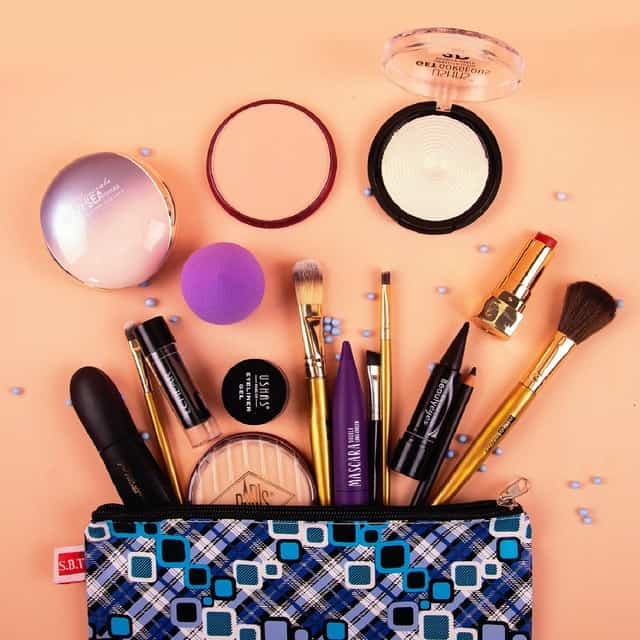Introduction
Cosmetics, especially DIY cosmetics, is a growing niche and brands are looking to make the most of its rising popularity. But, how can you make sure the cosmetic products are in line with the rules and regulations set by the governing authorities? We are going to help you exactly with that in this extensive guide. Here, we will help you figure out whether or not your cosmetic line needs a license and how can you get one when needed. Let’s get started!
Please note that all information posted is merely for educational and informational purposes. It is not intended as a substitute for professional advice. Should you decide to act upon any information on this website you do so at your own risk.
While the information on this website has been verified to the best of our abilities, we cannot guarantee that there are no mistakes or errors.
Do you need a license to launch a cosmetics line?
Business owners should practice caution when they are launching products in the US market. They must be well-acquainted with the laws to ensure they sell safe and compliant products. But, does that still stand when you are selling skincare products?
When you are selling beauty products in the United States, you are expected to have a license to sell the products. Having said that, you may not need a license to sell your products at the federal or state level.
You must understand how the US Food and Drug Administration (FDA) works. The FDA is responsible to regulate the use of different ingredients used in cosmetics. At the same time, it does not require cosmetic brands to own a special license for compliance.
To show compliance with the authorities, brands have to ensure they meet the labeling requirements. In other words, it is crucial that they do not mislead the customers with ingredients or claims that are not supported by evidence.
However, there are some states that require sellers to have a license to promote and distribute their products. But not all states require sellers to have a local state license. So, you better check with the local authorities before you start selling the products in a particular state.
Since you will be selling cosmetic products as a brand, it is crucial that you get a license at the federal level. This has nothing to do with selling the products in the market. It has more to do with how you run your business. Make sure you register your business with the government under a legal brand name. Not just that, you must also apply for a Seller’s Permit.
How to know if your products are regulated as cosmetics?
To figure out whether or not the products are regulated as cosmetics, the FDA considers the ingredients used in them, the claims made by the brand, and the consumer expectations. The FDA considers a product as cosmetic if the product helps cleanse a human body, makes people look attractive, or changes someone’s physical appearance.
At the same time, you must know that the product that intends to affect the functionality of a human body is considered a drug. There might be claims that sometimes make a product function both as a cosmetic and as a drug. These products are treated differently.
To get a better understanding of what products are marked as cosmetics, here are some examples of products:
- Nail care products
- Moisturizers
- Perfumes
- Colognes
- Hair dyes
- Makeup
- Other hair products like permanent waves, straighteners, and removers
Note: The FDA will intervene only when the cosmetic products use color additives in them. There should be no adulteration or misbranding in the products and they should be safe for consumption.
How are cosmetics registered?
Now that you know that the US Food and Drug Administration regulates the sale of cosmetic products, you must know how you can get your cosmetics registered. While the Federal Food, Drug, and Cosmetic Act do not require you to have FDA approval before entering the market, you can take certain actions to keep your cosmetic brand on the safer side of things.
Although the cosmetic products are not subject to Food and Drug Administration (FDA) for premarket approval, the FDA recommends cosmetic brands to partake in the Voluntary Cosmetic Registration Program (VCRP).
The VCRP doesn’t provide any license to sell nor is it a tool to promote the products. The FDA recommends VCRP to help brands ensure their products have safe ingredients, the labeling is done right and everything is in full compliance with the State/Federal law. Let’s find out everything you need to know about the Voluntary Cosmetic Registration Program.
Note: Cosmetic products should be registered if they are being commercially distributed in the US. Commercial distribution essentially means that the brand is making over $1,000 in annual gross sales with the products.
What is the Voluntary Cosmetic Registration Program?
The FDA encourages cosmetic brands to register with VCRP. To do that, you will first have to open a VCRP account with the FDA. Once the account is created, you can follow these steps to get registered with VCRP.
- Use the online VCRP system to file an establishment registration.
- Then file a Cosmetic Product Ingredient Statement (CPIS) through the online VCRP system.
To keep things simple, you will have to fill in the FDA forms 2511 and 2512 to comply with the VCRP. There are a few more things you must know regarding opening a VCRP account.
Only the owner or operator of a cosmetic brand, manufacturer, or distributor can own a VCRP account. This is not allowed for consultants or agents that are looking to open accounts on behalf of their clients.
Each company can own only one VCRP account. However, there is no limit to the number of users that can access the account at any given time. If multiple people in your company are responsible to maintain the VCRP database, you can share the username and password with them.
A Great Online Class: Introduction to Professional Makeup Techniques by Domestika
If you are interested in learning more about professional makeup techniques for your business, we recommend taking a look at the online class “Introduction to Professional Makeup Techniques” by Domestika.
The course is currently under promotion, but you can use the discount code: T_BROWNLEES-PROMO to get an additional 10% discount on your purchase.
This online class offered by Domestika, at a very inexpensive price covers all you need to know to create both bold, and understating looks by mastering makeup techniques. If you apply to the course through the link below you’ll be supporting 440 Industries, and we thank you for it!
Conclusions
There you have it. If you are looking to launch a new line of cosmetic products, you must go through the above-mentioned information and follow the steps to get your products registered. Make sure you are completely aware of the FDA guidelines to create, test, and distribute cosmetic products in the US market. While it isn’t responsible to give you approval, it will still regulate the products for the ingredients used. Interested in reading more, take a look at the content below!
If you’re interested in reading up more about successful strategies to market your fragrance business, we’ve got a post right on that. You’ll also find a list of the most profitable, expensive, and successful fragrances sold worldwide. Here’s the link!







